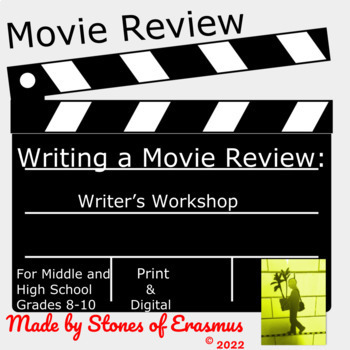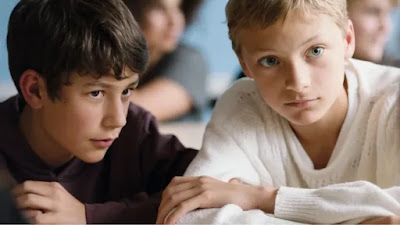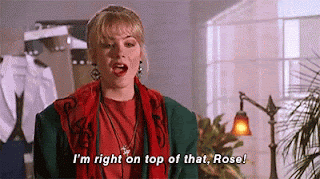I make no claim to a cinematic canon. These are my favorite movies. Subjective. No claim to objective standards of taste. Drum roll please:
1. Les Quatre Cents Coups (The Four Hundred Blows), Dir. François Truffaut (1959)
2. The Wizard of Oz, Dir. Victor Fleming (1939)
3. Billy Elliot, Dir. Stephen Daldry (2000)
4. Psycho, Dir. Alfred Hitchcock (1960)
5. Au Revoir Les Enfants, Dir. Louis Malle (1987)
6. Kes, Dir. Ken Loach (1969)
7. Eternal Sunshine of the Spotless Mind, Dir. Michel Gondry (2004)
8. Los Olvidados, Dir. Luis Buñuel (1950)
9. Vertigo, Dir. Alfred Hitchcock (1958)
10. Where the Wild Things Are, Dir. Spike Jonze (2009)
11. Nuovo Cinema Paradiso (Cinema Paradiso), Dir. Giussepe Tornatore (1988)
12. Dekalog (The Decalogue), Dir. Krzysztof Kieslowski (1988)
13. Det Sejunde Inseglet (The Seventh Seal), Dir. Ingmar Bergman (1957)
14. Rear Window, Dir. Alfred Hitchcock (1954)
15. Some Like it Hot, Dir. Billy Wilder (1959)
16. The Kid With a Bike, Dir. Jean-Pierre and Luc Dardenne (2011)
17. Welcome to the Dollhouse, Dir. Todd Soldonz (1995)
18. Citizen Kane, Dir. Orson Welles (1941)
19. The Tree of Life, Dir. Terrence Malick (2011)
20. Un Chien Andalou (The Andalusian Dog), Dir. Luis Buñuel (1929)
21. Fahrenheit 451, Dir. François Truffaut (1966)
22. The Mirror, Dir. Andrey Tarkovsky (1975)
23. The Graduate, Dir. Mike Nichols (1967)
24. Le Souffle au Coeur (Murmur of the Heart), Dir. Louis Malle (1971)
25. Jeux Interdits (Forbidden Games), Dir. René Clement (1952)
26. Salò, or the 120 Days of Sodom, Dir. Pier Paolo Pasolini (1975)
27. Orpheus, Dir. Jean Cocteau (1950)
28. The Phantom of Liberty, Dir. Luis Buñuel (1974)
29. The Firemen’s Ball, Dir. Milos Forman (1967)
30. Midnight Cowboy, Dir. John Schlesinger (1969)
31. La Strada (The Road), Dir. Federico Fellini (1954)
32. Mulholland Drive, Dir. David Lynch (2001)
33. Habla con Ella (Talk to Her), Dir. Pedro Almodovar (2002)
34. Stella Dallas, Dir. King Vidor (1937)
35. Olivier, Olivier, Dir. Agnieska Holland (1992)
36. Battleship Potemkin, Dir. Sergei M. Eisenstein (1925)
37. 晩春 Banshun (Late Spring), Yasujirō Ozu (1953)
38. 2001: A Space Odyssey, Dir. Stanley Kubrick (1968)
39. My Night at Maud’s, Dir. Eric Rohmer (1969)
40. The Royal Tenenbaums, Dir. Wes Anderson (2001)
41. A Trip to the Moon, Dir. Georges Méliès (1902)
42. Close Encounters of the Third Kind, Dir. Steven Spielberg (1977)
43. Au Hasard Balthazar (Balthazar, At Random), Robert Bresson (1966)
44. Angst essen Seele auf (Ali: Fear Eats the Soul), Dir. Rainer Werner Fassbinder (1974)
45. Harold and Maude, Dir. Hal Ashby (1971)
46. E.T. the Extra-Terrestrial, Dir. Steven Spielberg (1982)
47. La Belle et la Bête (Beauty and the Beast), Dir. Jean Cocteau (1946)
48. The Squid and the Whale, Dir. Noah Baumbach (2005)
49. Spoorlos (The Vanishing), Dir. George Sluizer (1988)
50. La Cite des Enfants Perdus (The City of Lost Children), Dir. Jean-Pierre Jeunet (1995)
51. Mighty Aphrodite, Dir. Woody Allen (1995)
52. La Stanza del Figlio (The Son’s Room), Dir. Nanni Moretti (2001)
53. Y Tu Mamá También (And Your Mother Too), Dir. Alfonso Cuarón (2001)
54. 雨月物語 Ugetsu, Dir. Kenji Mizoguchi (1954)
55. 羅生門 Rashomon, Dir. Akira Kurosawa (1950)
56. The Night of the Hunter, Dir. Charles Laughton (1955)
57. Le Plaisir, Dir. Max Ophüls (1952)
58. Being John Malkovich, Dir. Spike Jonze (1999)
59. Synecdoche, NY, Dir. Charlie Kaufman (2008)
60. High Noon, Dir. Fred Zinnemann (1952)
61. Hiroshima, Mon Amour, Dir. Alain Resnais (1959)
62. The Lady Eve, Dir. Preston Sturges (1941)
63. Lost in Translation, Dir. Sofia Coppola (2003)
64. The Up Series, Dir. Michael Apted (1964 - Present)
65. Weekend, Dir. Andrew Haigh (2011)
66. Who’s Afraid of Virginia Woolf?, Dir. Mike Nichols (1966)
67. La Mala Educación (Bad Education), Dir. Pedro Almodovar (2004)
68. Lord of the Flies, Dir. Peter Brook (1963)
69. The Dangerous Lives of Altar Boys, Dir. Peter Care (2002)
70. Andrei Rublev, Dir. Andrey Tarkovsky (1966)
71. Amour, Dir. Michael Haneke (2012)
72. Inglorious Basterds, Dir. Quentin Tarantino (2009)
73. Empire of the Sun, Dir. Steven Spielberg (1987)
74. A.I. Artificial Intelligence, Dir. Steven Spielberg (2001)
75. The White Ribbon, Dir. Michael Haneke (2009)
76. Margaret, Dir. Kenneth Lonergan (2011)
77. Wild Tigers I Have Known, Dir. Cam Archer (2006)
78. Alice, Dir. Jan Švankmajer(1988)
79. Through a Glass Darkly, Dir. Ingmar Bergman (1961)
80. Passion of Joan of Arc, Dir. Carl Theodor Dreyer (1928)
81. Arabian Nights, Dir. Pier Paolo Pasolini (1974)
82. 千と千尋の神隠 (Spirited Away), Hayao Miyazaki (2001)
83. La Pianiste (The Piano Teacher), Dir. Michael Haneke (2001)
84. George Washington, Dir. David Gordon Green (2000)
85. Niki Ardelean, colonel în rezerva (Niki and Flo), Dir. Lucian Pintille (2003)
86. Der Himmel über Berlin (Wings of Desire), Dir. Wim Wenders (1987)
87. Der Blaue Engel (The Blue Angel), Dir. Josef von Sternberg (1930)
88. Equus, Dir. Sidney Lumet (1977)
89. The Best Years of Our Lives, Dir. William Wyler (1946)
90. 4 luni, 3 săptămâni şi 2 zile (4 Months, 3 Weeks and 2 Days), Dir. Cristian Mungiu (2007)
91. Mon Oncle, Jacques Tati (1958)
92. Copie Conforme (Certified Copy), Dir. Abbas Kiarostami (2010)
93. Hedwig and the Angry Inch, John Cameron Mitchell (2001)
94. Louisiana Story, Dir. Robert J. Flaherty (1948)
95. Black Orpheus, Dir. Marcel Camus (1959)
96. The Rocky Horror Picture Show, Dir. Jim Sharman (1975)
97. Dancer in the Dark, Dir. Lars von Trier (2000)
98. Silver Linings Playbook, Dir. David O. Russell (2012)
99. Ordinary People, Dir. Robert Redford (1980)
100. The Silence of the Lambs, Dir. Jonathan Demme (1991)








